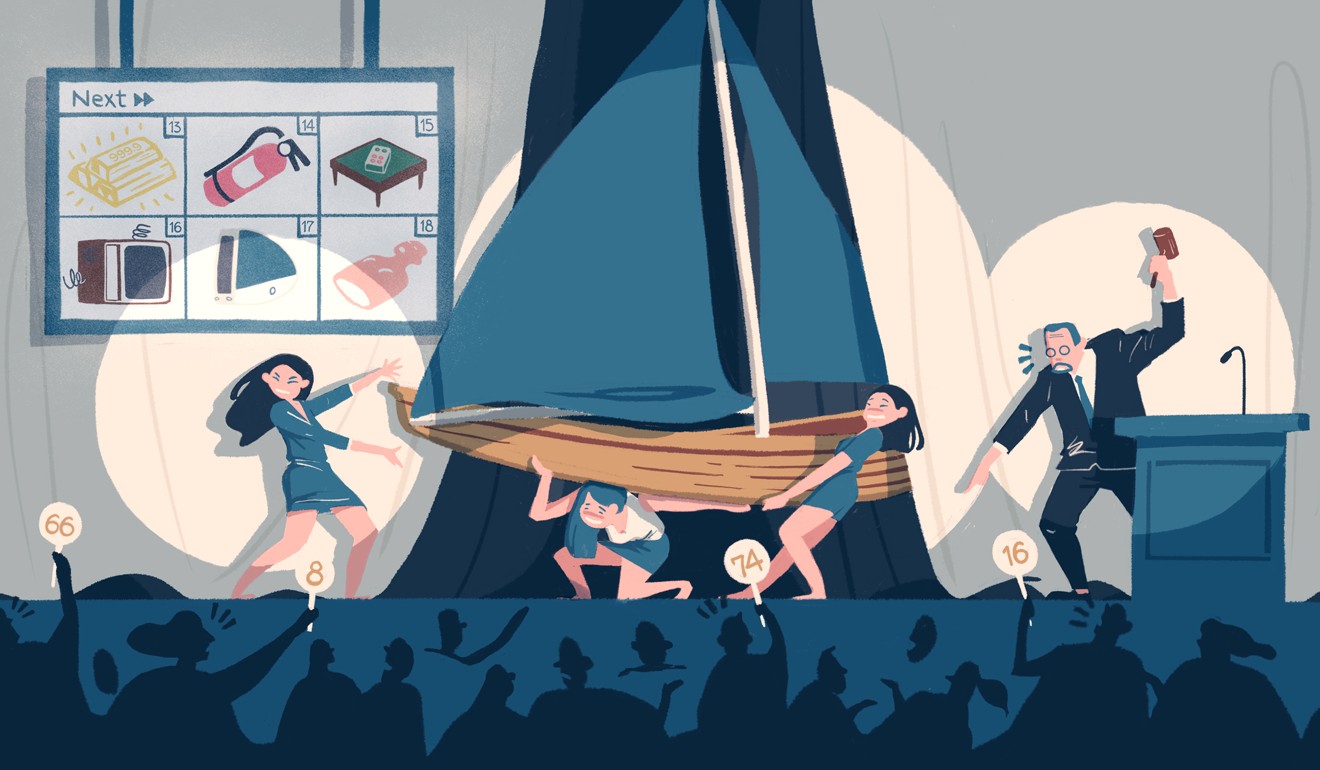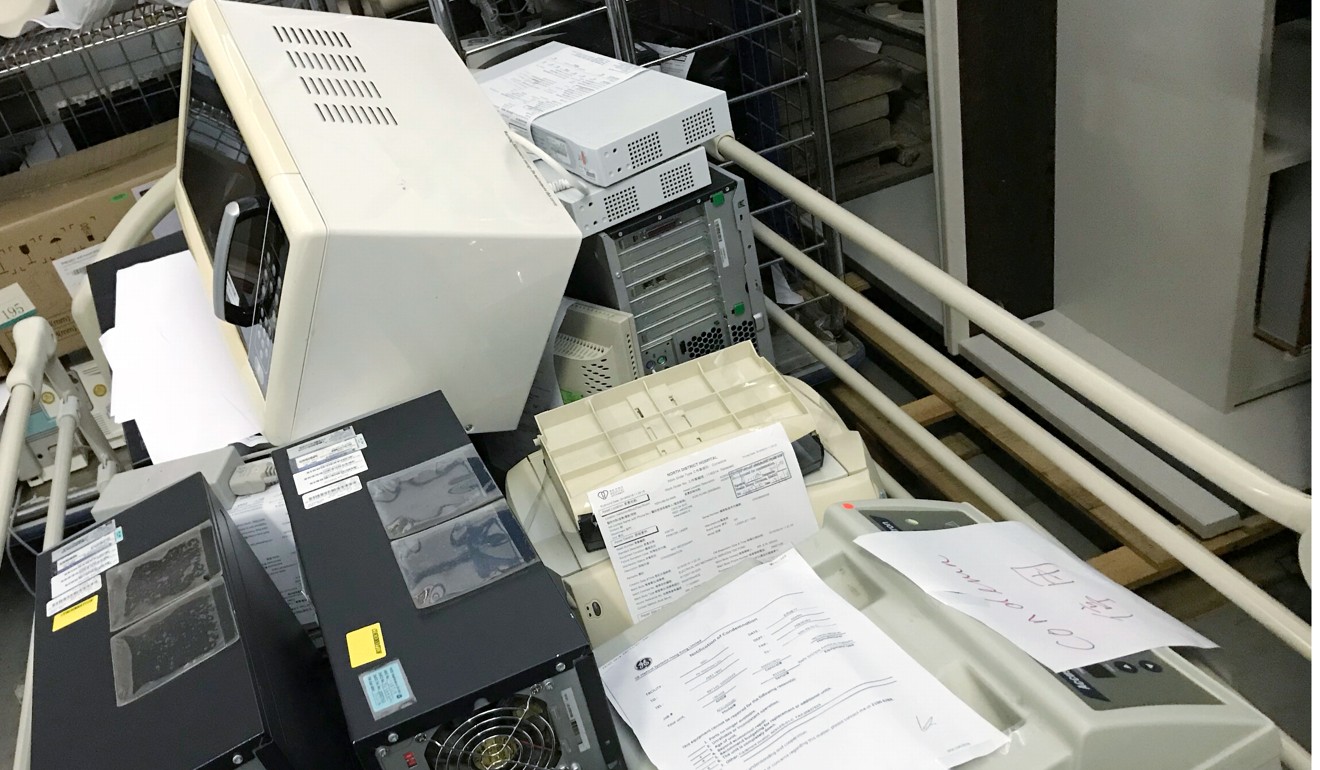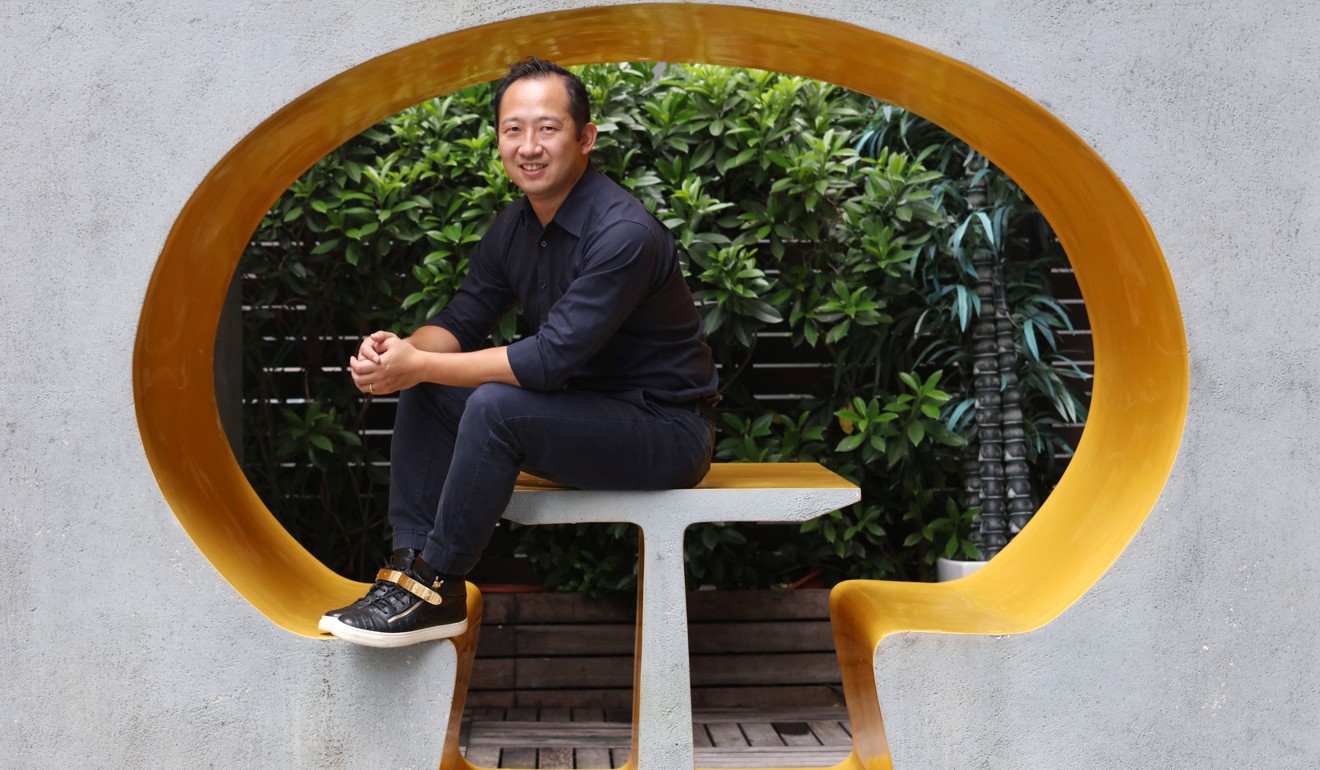
Fine art, antiques, rare spirits? Not at this Hong Kong auction: broken toys, old electrical goods and surplus equipment all go on the block in government sales
Although city is famous for multimillion-dollar items going under the hammer, the most regular auction is held by the Government Logistics Department
Standing on a podium in front of a packed room, Hong Kong auctioneer Ivan Wan Sze-chit rattled off rapidly rising dollar amounts in a nail-biting bidding war.
But going under the hammer wasn’t a multimillion-dollar Chinese vase or a Picasso painting.

In less than 60 seconds, Wan signalled the end of a sale with the bang of his gavel: “Sold for HK$1,650 [US$211]!”
What were up for grabs were two toy swords and a model tank, labelled as “unserviceable”, and unclaimed from the post office.

Although famous for its luxury auctions of fine art, antiques and rare spirits, the city’s most regular auction is held by the Government Logistics Department.
Since 2003, public auctions have been held twice a month to sell confiscated items, unclaimed goods and surplus stores from various government departments and public bodies which are considered to have some resaleable value.
In the past five years, the government raked in an average of HK$45 million a year in revenue selling about 2,000 lots annually. Some 5,600 people are registered bidders, many of whom are recycling operators or door-to-door collectors.
Could wine investment be perfect stock market hangover cure?
Anything from confiscated, damaged electronic mahjong tables to broken-down windsurfing boards from the Leisure and Cultural Services Department have been put up for auction.
An eclectic bundle of 822 items including blankets, belts and mobile phone accessories had a starting bid of HK$100, but was sold for HK$4,600 at a recent auction.
Would you pay US$21,400 for a shot of this whisky?
An abandoned washing machine and exhaust hood left at a public housing estate went for HK$20.
But for regular bidders like George Lo, these auctions are what helps his second-hand business stay afloat.
It’s how we in the second-hand industry can survive
“At least 70 per cent of my goods are from government auctions, the rest are collected door-to-door,” said Lo, who runs a second-hand electronic appliance shop in Yuen Long.
Another regular bidder, Josephine Ho, who works at a scrapyard, said a quarter of their cars came from government auctions.
“It’s how we in the second-hand industry can survive,” Ho said.
Wan, a second-generation auctioneer who has been in the business for more than 14 years, has also witnessed how the government’s auctions have stood the test of time.
“Auctions have been changing over the years, with the emergence of bidding online and by phone,” Wan said.
“At luxury auctions selling jewellery and watches, there used to be more than 200 people who would show up for a live auction in the old times, but now there would only be about 20 to 30 people.”

The government’s public auctions can draw anywhere between 60 and 100 people at a time, according to a Post tally.
While successful and popular, the auctions are not for everyone.
Ruby Ngan, who showed up to watch one of the auctions, said that while she found it interesting, she did not think she would buy any of the items, especially goods such as leftover furniture from public housing estates.
Fake goods seizures surge after customs unleashes AI on counterfeiters
“I’m quite superstitious. You don’t know where they’ve been, what they’ve been through. It could be from a haunted flat where someone died,” Ngan said.
“Actually I would prefer to buy goods that were smuggled across the border. At least they’d probably be new.”

